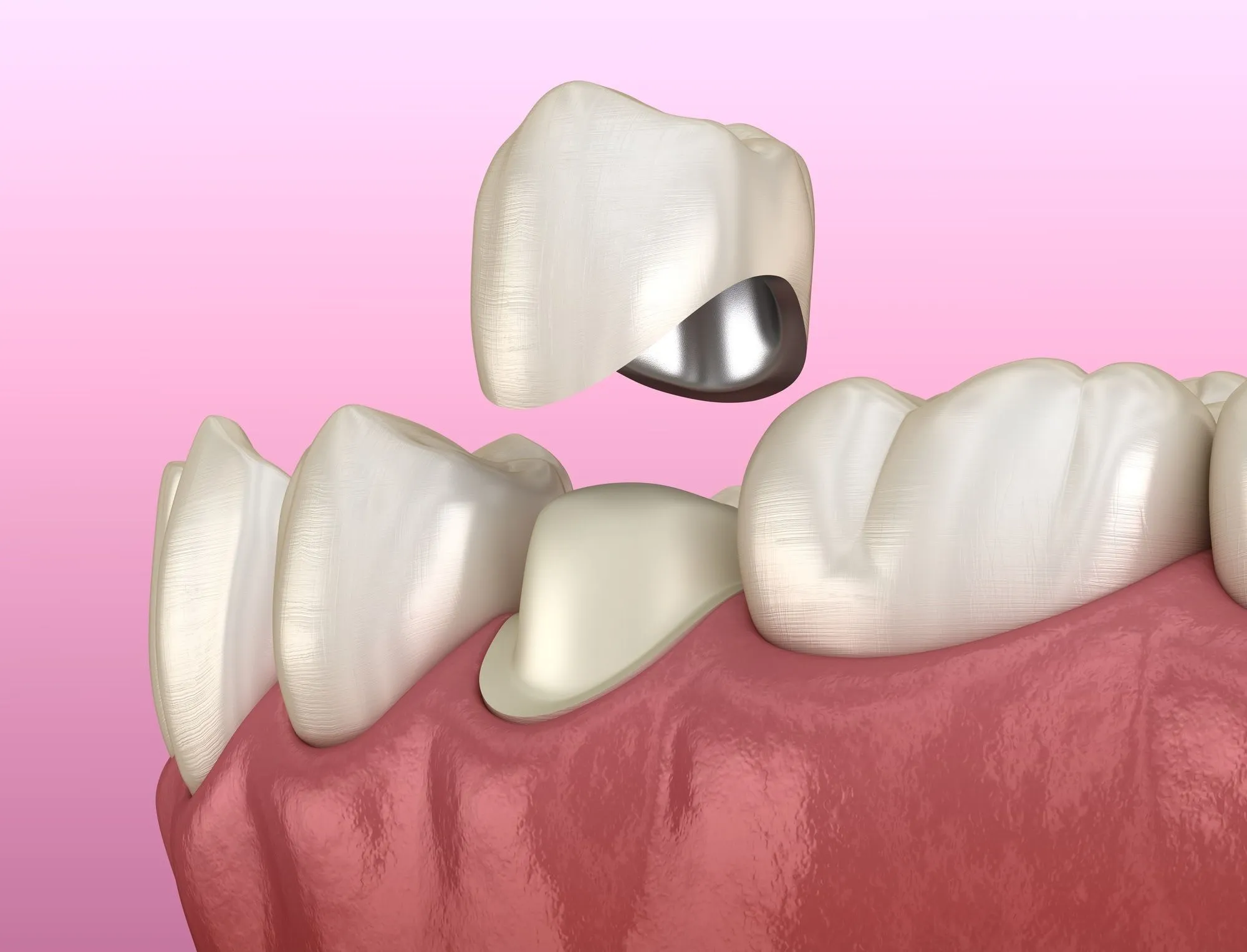With the demands of beauty and attractive appearance becoming increasingly popular in the current era, dental crowns have become one of the popular solutions to achieve the perfect smile. Dental crowns are an aesthetic procedure that aims to improve the appearance of teeth by covering defects and improving their color and shape. However, these procedures also have their disadvantages and disadvantages that must be taken into consideration before deciding to plaster.
What are dental crowns?
Dental crowns are cosmetic procedures aimed at improving the appearance of teeth by covering natural teeth with a thin layer of various materials. These crowns are used to cover cosmetic defects such as pigmentation, chips, erosion, or to improve the shape and color of teeth. Covering materials and types vary depending on the condition and individual needs, including:
- Porcelain crowns: Also known as ceramic crowns, they are made of ceramic materials that resemble the color and texture of natural teeth. It is characterized by its resistance to yellowing and corrosion.
- Resin crowns: They are made of composite resins, are flexible and adjustable, and can be installed quickly in the medical office.
- Metal crowns: They are made of metal alloys such as gold or nickel, and are used in cases that require extreme strength, such as restorations on the back teeth.
- Clear crowns (Invisalign): They are not crowns in the traditional sense, but rather are transparent devices used to straighten teeth without the need for visible wires.
Crowns are a dentist-reliable procedure to improve the shape of teeth and provide a beautiful smile, but they must be selected and implemented under the supervision of a specialist dentist to avoid potential problems and complications.
Cases that require a dental retainer
There are many cases that may require the presence of a dental retainer, and its necessity is determined based on a comprehensive assessment of the individual’s condition and the recommendation of the treating physician. Here are some common situations that may require a dental retainer:
- Orthodontic treatment:
After braces or other orthodontic appliances are removed, the teeth are fixed in their new positions to prevent them from moving and returning to their previous position.
- Large dental restorations:
After large dental restorations such as large fillings or crowns, a dental retainer may be needed to reinforce the treated teeth and prevent them from breaking.
- Mouth or facial injuries:
In cases of injuries that result in deformities of the jaws or teeth, retainers may be used to stabilize damaged teeth or to repair fractures.
- Structural changes in the jaws:
In cases of structural changes such as small or large jaws, retainers may be used to properly adjust and stabilize the teeth.
- Corrosion prevention treatments:
In cases of severe tooth wear due to excessive cleaning or other causes, your dentist may recommend retainers to prevent unwanted movements.
- Improving jaw function:
In some cases, there may be a need to modify the function of the jaws using retainers to improve balance and natural movement of the jaws.
These cases are only general examples, and the individual should consult a specialist dentist to carefully evaluate his condition and determine whether or not there is a need to use a dental retainer.
Harmful effects of dental crowns
Dental crowns provide aesthetic and functional benefits, but they may be associated with some harms and complications that must be considered before deciding to have them done. Here are some potential harms to dental crowns:
- Allergies:
Some people may experience sensitivity to heat and cold after crowns are placed, especially if a large amount of enamel was removed during tooth preparation.
- Damage to the original teeth:
Preparing teeth for crowns requires removing part of the natural tooth enamel, which can weaken the original structure of the teeth and make them more susceptible to damage or decay.
- Paneling separation:
Veneers can separate from the teeth over time due to wear of the adhesive or strong chewing forces. This may require re-gluing or replacement.
- Wear and tear:
Over time, coverings can wear and tear, especially those made of less durable materials such as composite resin. Porcelain or ceramic tops are more resistant but not immune to corrosion.
- Gum problems:
Crowns can cause gum irritation or infection, especially if they are not fitted correctly. Crowns that extend below the gum line may lead to gingivitis or gum disease.
- Abnormal appearance:
If the color of the crown is not chosen correctly or does not perfectly match the adjacent teeth, it may appear unnatural or asymmetrical.
- High cost:
Dental crowns can be expensive, and sometimes need to be replaced after several years, increasing the overall cost of dental care.
- Allergic reactions:
Some people may be sensitive to the materials used in dental crowns, such as the metals in metal crowns, which may cause allergic reactions.
While dental crowns offer significant aesthetic and functional benefits, it is important for patients to be aware of potential harms and complications. Consulting a specialist dentist and understanding all aspects related to dental crowns can help in making an informed decision that suits the individual’s needs and health conditions.
Related articles :
Hollywood smile in Istanbul
advantages of cosmetic dentistry in Turkey
Plastic surgery in Istanbul
Dental treatment cost in Turkey
advantages of laser teeth whitening in Istanbul
Types and risks of dental implants in Turkey
hair transplant techniques in Istanbul
Dental veneers in Turkey
Hair transplantation in Turkey
Types of orthodontics in Istanbul and their features
